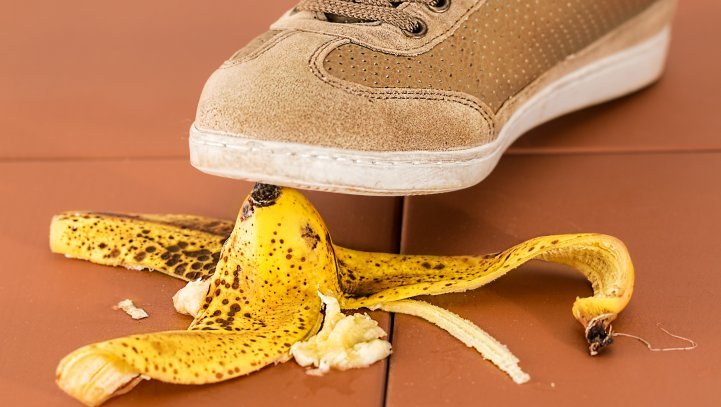GET IN TOUCH
Please contact us for more information. Our email is monitored seven days a week and we will get back to you shortly.

In British Columbia, the law provides that a person who is in physical possession or control over premises has duty of care to see that another person, and that person’s property, is reasonably safe in using the premises (basically, a law against unsafe premises). This area of law is referred to as “occupiers liability law” because under BC legislation, a person who is in physical possession or control property is called an “occupier”.
This law often comes into play when someone suffers a fall in a grocery store or a restaurant, slips in an icy parking lot, trips on an uneven sidewalk, or falls down uneven stairs. Notice, however, that I also said the law applies to people’s property as well. That is, a person’s property, such as a vehicle, must also be reasonably safe in using another’s premises.
While we do not like to think of domestic pets or farm animals, such as dogs or horses as “property”, as they can often be part of the family, the law considers them to be property and also provides that these creatures should also be reasonably safe in using another’s premises. However, the majority of cases in this area of law relate to injuries to people.
Some people believe that if they injure themselves when they are on another person’s property, through no fault of their own, that the owner of the property is automatically responsible for having unsafe premises. This is incorrect. The law only requires a person to take reasonable steps to see that another person or their property is reasonably safe in using the premises. In other words, the law does not require perfection in ensuring premises are absolutely safe. The most common example of injuries on premises are slip and falls on residential or commercial property due to slippery substances such as water, ice, or food. In these cases, the law requires the person controlling the premises to exercise a reasonable standard of inspection and maintenance for hazards. This does not mean that the occupier will be liable for any accident, only an accident where reasonable inspection and maintenance could have avoided the accident – where negligence on the part of the property owner has resulted in unsafe premises.
For example, the courts have found that grocery stores in British Columbia should do regular inspections of their floors about every 30 minutes to two hours depending on the type of store, the area of the store, and how busy it is. As long as the store has a system to ensure this inspection is occurring, and can show that it actually occurred, the store may not be held liable for an injury even if somebody innocently slips on something such as grapes in the produce aisle.
As an example, imagine that you walked into a grocery store and ten minutes before you come along another customer spilled grapes on the floor without noticing. This could totally happen, right? Then you slip on the grapes before the store employees had a chance to notice them and remove the hazard. You fall hard onto the concrete floor, perhaps breaking a bone. It is possible the store would not be liable for your injuries, provided they could show the system they had in place was reasonable and it was being followed, even though the grapes were on the floor for several minutes before you stepped on them.
Again, the law does not require perfection, or for the occupier to be responsible for any serious injury; rather, it only requires they exercise care that is reasonable in all of the circumstances.
That said, I continue to be surprised how large and sophisticated companies, such as large grocery store chains, either fail to have effective systems of inspection and maintenance in place to safeguard the safety of their customer, or simply don’t follow the system they do put in place.
I hope you have learned something from this week’s blog. Please feel free to like us on Facebook, follow us on Twitter and subscribe to our YouTube channel to receive notice of our future weekly video blogs on the law. League and Williams is a Victoria, BC based law firm with expertise in injury law, estate disputes and marine law and may be reached via email at info@leaguelaw.com or phone at 250-888-0002. If you are injured and would like a free consult, give us a call for a free consult. We are here to help injured parties get the fair compensation that they are entitled to.